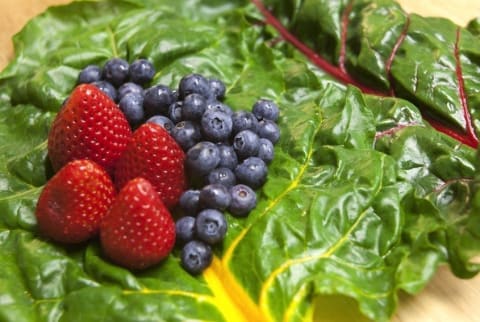
Looking for some simple ways to improve your wellbeing and feel more energized? Increasing your antioxidant intake could help.
Antioxidants are substances or nutrients found in our bodies and food that help to stop or slow down oxidative damage. Our bodies use oxygen to function, and as a result free radicals are produced. These little things bounce around causing all sorts of damage to our cells. This is a natural process, and antioxidants clear up the free radicals, helping reduce their potential damage.
Too many people don’t eat enough fruits and vegetables, and if you smoke, diet regularly or live in a polluted city, you would in all likelihood benefit from increasing your antioxidant intake.
While the research is mixed, with some studies finding antioxidant supplements reduce disease risk, others have found supplements to have no benefits. What's clear however, is that people who have a diet rich in a good mixture of fruit and vegetables and high in antioxidants tend to live longer, healthier lives than those who don’t.
So don’t rely on supplements, follow these tips to naturally increase your antioxidant intake:
1. Pay attention to food preparation.
How you prepare and cook your vegetables can really affect the nutrients in them. Eating raw veggies maximizes antioxidant intake (with the exception of tomatoes, which when cooked have a higher lycopene content, a prostate cancer-reducing antioxidant), but you don’t have to turn into a rabbit.
Here are a few tips for maximizing antioxidant content of cooked veggies:
- Don’t peel
- Minimize chopping
- Don’t soak in water pre-cooking
- Cook quickly at a high heat rather than slowly on a lower heat
- Don’t cook in copper pots (this reduces the amount of vitamin C)
- Frozen veggies are good sources of antioxidants
- Steaming helps retain nutrients
2. Remember, color counts!
Antioxidants often give color to foods, so getting different colors means a variety of antioxidants. For example, salmon and eggs with bright orange yolks are high in astaxanthin, an important anti-inflammatory antioxidant.
Don’t fall for the superfruit hype. All fruit contains beneficial nutrients; you don’t need to splash out on the expensive exotic fruit to get benefits. The key is variety, especially variety in color. Aim for two or three different colors each of fruits and veggies each day. Juicing fruit and veggies is a great way to increase your intake – get creative, since it's hard to go wrong!
3. Drink 'em up.
Many beverages are actually great sources of antioxidants, not just fruit smoothies (beware of consuming too many of these, as they tend to be heavy on calories or sugar).
Green tea, cranberry juice, cherry juice, and even coffee and red wine are good sources of antioxidants. Again the keys are variety, moderation and balance. So no, five glasses of red wine does not mean you’ve had your "five a day!"
Matcha tea (a type of green tea made from powdered tea leaves) is a particularly rich source of antioxidants, and while this can be an acquired taste, you can get the benefits without the taste simply by adding ½ a teaspoon of the powder to smoothies, yogurts, or your morning cereal.
4. Add herbs and spices.
Increase your antioxidant intake and make your meals more tasty by adding herbs and spices instead of salt. Turmeric in particular is high in antioxidants, but most herbs and spices are good sources.
Think outside the box and sprinkle herbs and spices on vegetables, mix with yogurt for a tasty dip, or add to salad dressings.
5. Snack smartly.
Not only are nuts and seeds a healthy snack which will keep you going between meals, they are also rich in antioxidants. Brazil nuts are a key source of selenium, which is important for brain health, while almonds and sunflower seeds are great sources of vitamin E.
Mix nuts and seeds with dried fruit for even more beneficial nutrients.
And for those of you who need your daily chocolate fix, switch to polyphenol-rich dark chocolate, which can have a positive effect on heart health. It does have to be dark chocolate (or cacao), and in moderation – a couple of squares a day should be enough.

Rhona Pearce is the founder and owner of www.your-antioxidant-guide.com, a website full of information about antioxidants and healthy eating. With degrees in sports science and exercise physiology, her aim is to bring you science-based advice in order to dispel the hype and myths around wellbeing and nutrition.